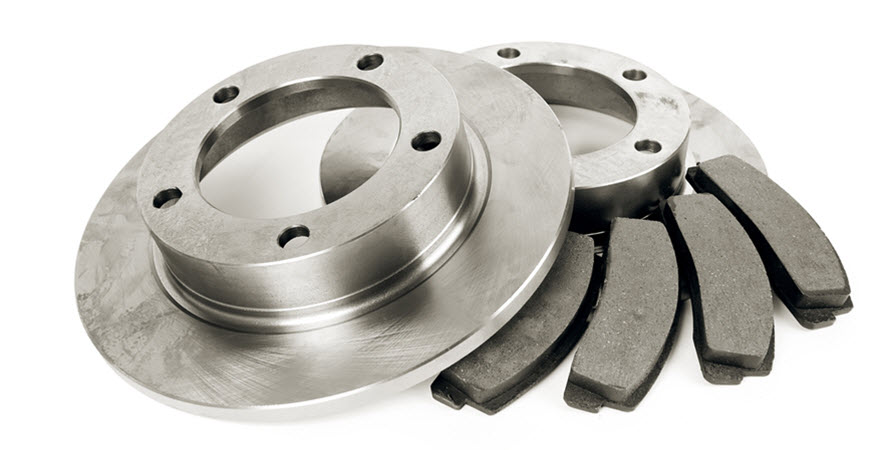If you feel your BMW’s brake pads are wearing thin, you may ask if it is time to get them changed. The brake pads play a crucial role in your vehicle’s performance, and their wearing down can be unsafe and cost you thousands of dollars in repairs due to auxiliary damage.
This article is going to discuss why you need to change your BMW’s brake pads, how often you should replace your brake pads, signs that your brake pads are wearing thin and the best place to get them replaced for your BMW.
Function of the Brake Pad
Your BMW’s brake pads help bring your car to a complete stop by creating friction when pressed against the brake disc. The brake disc and brake pads rub together, reaching high temperatures from the friction between the two.
There are 8 brake pads in your car, two at each rotor. Every time you stop, a small bit of material from the brake pad comes off as a result. The pads can be made of either metallic, organic, ceramic or composite materials.
Why do I need to change my BMW’s brake pads?
The friction material begins at around 10–12 millimeters and over time will wear down until you should get your pads replaced. If you go beyond this point until there is no friction material left, it could spell disaster for your BMW.
The friction will become unevenly dispersed, and metal may begin to rub on metal. In this case, temperatures will reach extremely high levels, which could damage the entire braking system in your BMW.
The metal that holds the brake pad will also begin to rub against the rotor, which has the potential to damage and warp it. The surface of the rotor may become so disfigured that it makes driving very dangerous. The cost of resurfacing your brake rotors is around $300, so it is best to just bite the bullet and replace those worn down brake pads.
The Time Between Replacements
The rule of thumb for replacing your brakes pads is to change them out every 50,000 miles. But this is merely a rule of thumb, and there are a variety of factors that may alter that number.
Your driving habits, the brand and quality of brake pads on your BMW and the material of the brake pads can all alter the recommended amount of time between replacement. It’s best to talk to a trusted mechanic about what the best mileage is for your unique vehicle.
Signs It’s Time to Change Your Brake Pads
If you aren’t paying attention to the way your car is functioning, an issue like thin brake pads can be overlooked. If you know what to keep in mind, however, you’ll be able to spot an old brake pad like nobody’s business. Look out for the following signs:
Squealing Noise
That God-awful squealing noise we all know is actually a feature, not a bug, of your brake pads. There are built-in metal hairs near the bottom of the friction material that squeal when it’s time to replace them.
Brake Pads Less Than .25 Inch Thick
Take a look for yourself or get your mechanic to take a look at your brake pads the next time there is an opportunity. If they’re thinner than .25 inches, get them replaced.
Brake Pedal Vibration
A jittery brake pedal is a common sign that the brake pad has actually worn down too far and needs to be replaced, to the point that your BMW’s brake rotors may have warped.
BavariumAutoworks is the Best Place to Get Your BMW’s Brake Pads Replaced
If your BMW needs brake pads, don’t put it off any  longer; you’re only losing money and quality. Thankfully, BavariumAutoworks can change your car’s brake pads with no issue, and it won’t cost you an arm and a leg like it will at the dealership or other shops, either.
longer; you’re only losing money and quality. Thankfully, BavariumAutoworks can change your car’s brake pads with no issue, and it won’t cost you an arm and a leg like it will at the dealership or other shops, either.
We are committed to delivering the premier service experience for our guests, from our friendly staff to the world-class repairs and maintenance they perform. We proudly serve customers from Cupertino, Palo Alto, San Jose, Santa Clara, Saratoga and Mountain View, California.If you have any questions or need your European vehicle serviced by a repair shop that specializes in them, stop by or give us a call any time.

